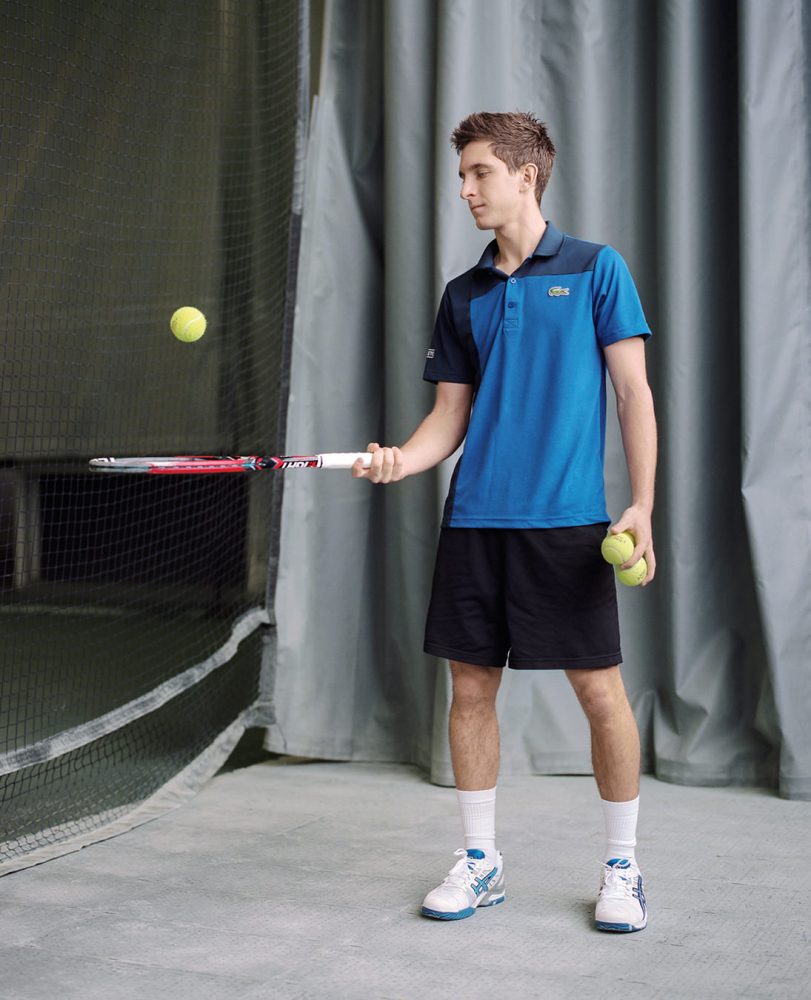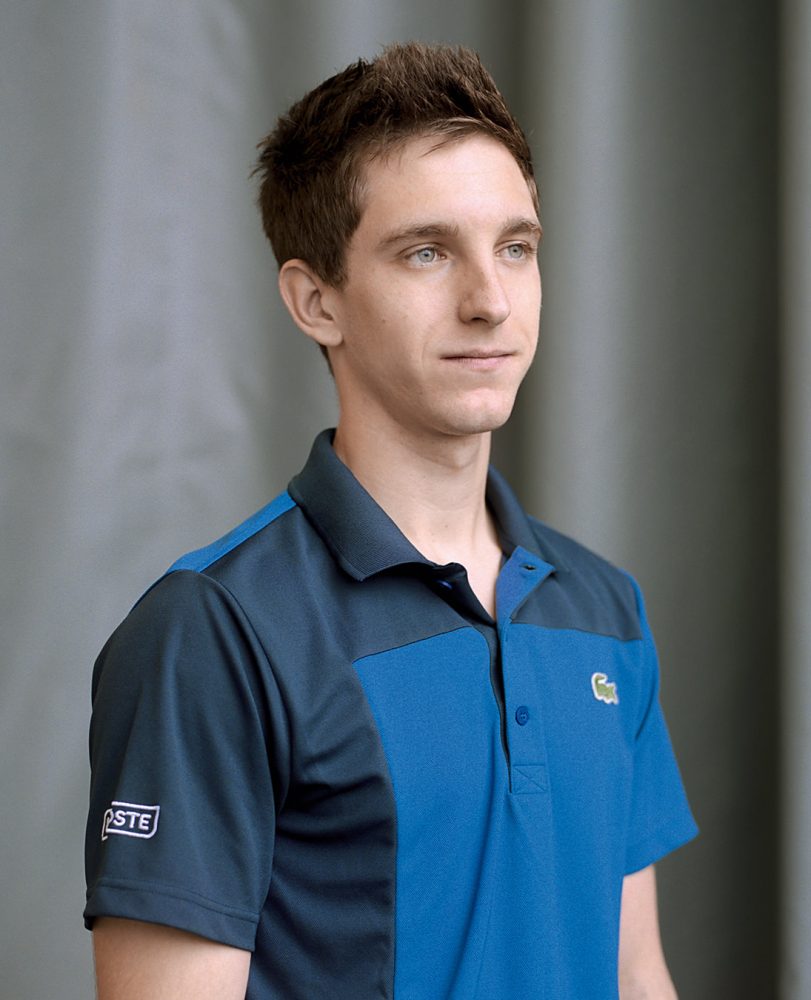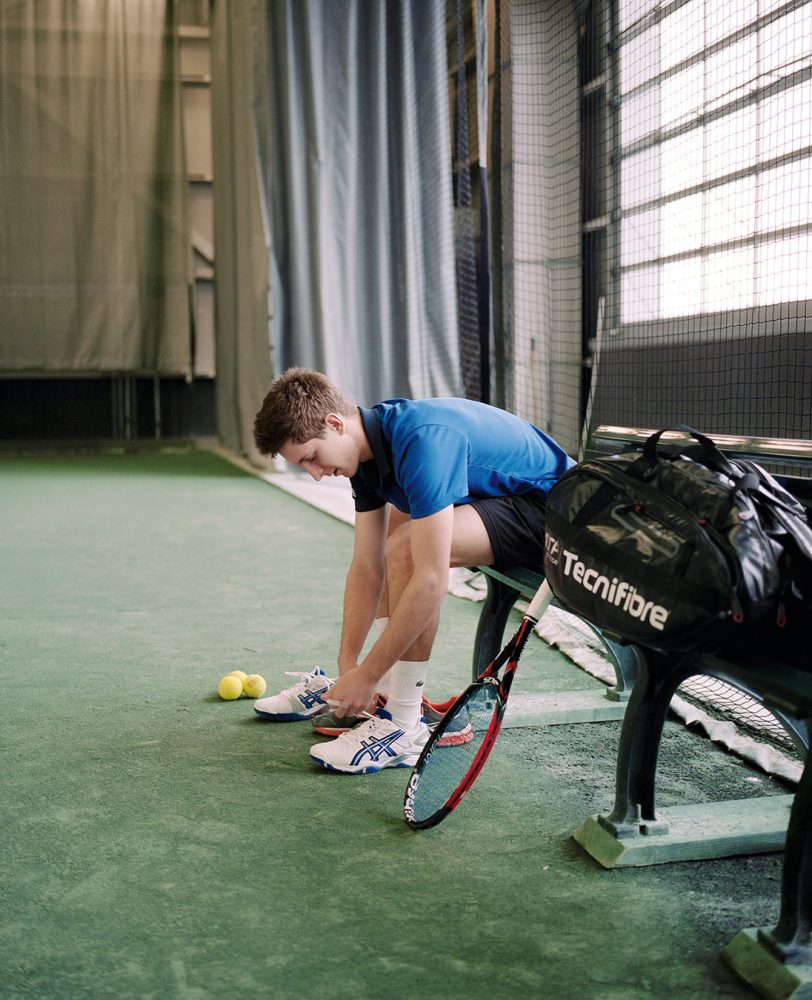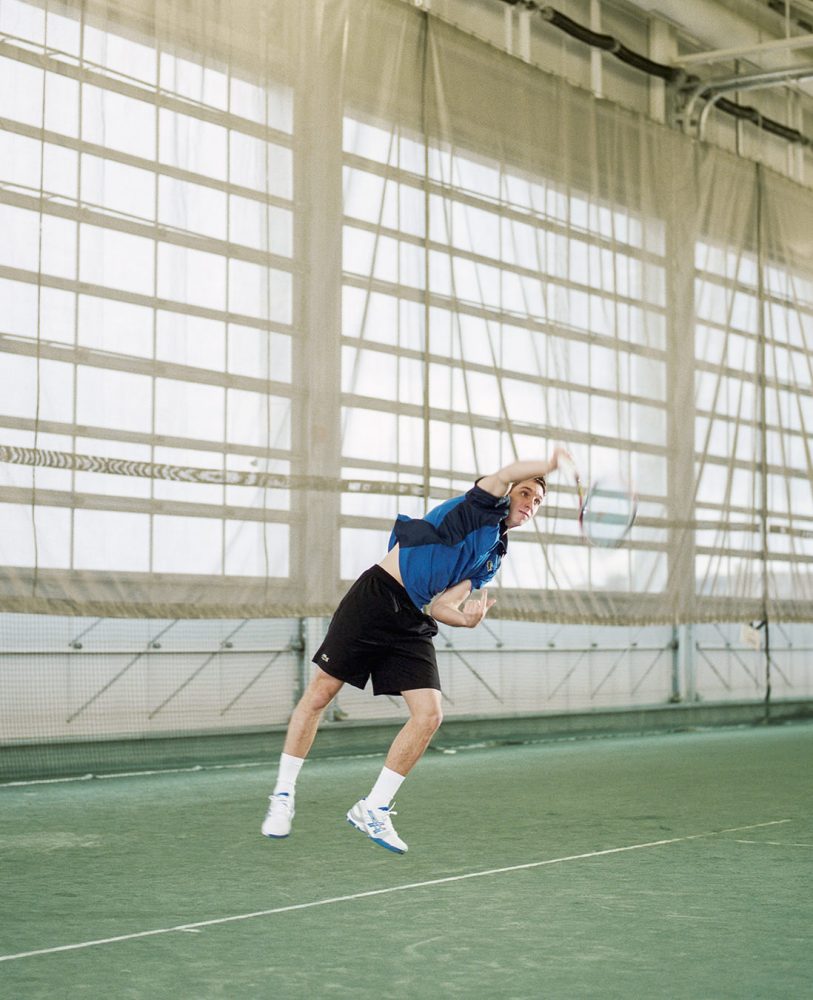“The goal is to be number one. It’s always been the goal. That will never change.” The resolve in his voice is unmistakable as he responds to a question about his future in tennis. There is no hesitation, no sign of intimidation. There is also no detectable arrogance in his answer, but rather, an unwavering confidence. Filip Peliwo is on a mission.
It all began quite innocently. Mark and Monika Peliwo would bring their youngest child along with them when they played recreationally at North Vancouver’s Grand Boulevard Park. Four-year-old Filip would watch his parents rally, but he made it very clear he was not satisfied with spectating. “He said, ‘I want to play too,’ ” says his father, chuckling. “Whether he was hitting with us or against a wall, it didn’t matter. He just wanted to play.”
Such youthful enthusiasm is hardly unique, and his parents indulged his constant appeals to pick up a racket. But Peliwo was interested in more than simply emulating his folks. He consumed the game with a voracious appetite. He would watch tennis on television with his father and immediately plead to play after the match concluded. Mark usually consented, and he watched his son’s passion grow to the point where it was time for organized tennis. At age eight, Peliwo began playing at the North Shore Winter Club, but there was no expectation of anything more than participation. “We had no thoughts about competitive aspirations. We just wanted to put Filip in a sport he enjoyed,” recalls Mark. “But one of the coaches saw it right away.”
So did Dr. David Cox. A fellow member of the club, the accomplished sports psychologist is wont to observe the club’s burgeoning young tennis players, as he was once one himself. Peliwo’s play caught Cox’s eye, but their conversation got his attention. “In sport, you just know in some people there’s just something that sets them apart,” explains Cox. “There was a look about him, a feel, the look in his eye.”
“Stay in the present. You don’t win a match until it’s over. One point at a time.”
This quality, ineffable but real, is what has always made Peliwo stand out, for he is not Milos Raonic. He is not 6 foot 5, and he does not possess the overpowering serve of his countryman. That’s not meant to diminish his skill set; one does not reach all four boys’ Grand Slam finals in the same year (the first to do so since Australia’s Mark Kratzmann in 1984), win both Wimbledon and the U.S. Open, and then become 2012 World Junior Champion without a high degree of athleticism. But Peliwo cannot rely simply on physical dominance to defeat his opponents. He must be more precise, more calculating, more persistent. Whatever it is, Peliwo has it in spades.
“There are a lot of people I’ve been privileged to work with in a variety of sports, and within that, there’s a very special group. Filip is in that group,” says Cox, who has worked with countless world-class athletes, including major league professionals. “There’s a quote from Steve Nash that I like to use: ‘I have a commitment and a drive that’s in the top 10 per cent—that’s my talent.’ Filip has that same commitment and drive.”
“Stay in the present. You don’t win a match until it’s over. One point at a time.” Peliwo verbalizes the thoughts he repeats over and over in his head during the course of a match, the thoughts that centre him, ground him. Concentrating on this mantra and the physical routine that accompanies it keeps him focused on the process of the match instead of the result. He has worked diligently with Cox on refining this personal practice because it has not always been his strength.“It happened quite a few times, actually. I was playing a lot better than my opponents, I would get tight and couldn’t close matches out,” reflects Peliwo. “I relaxed and thought, ‘I’ve got this; I’ve won this match,’ and I would start thinking about the next match. It would start to unravel, and I’d start missing shots. Then I’d be thinking about those misses, and I would start to lose the match.”
The younger version of the now 19-year-old would then dwell on the collapse, a natural tendency for extremely competitive athletes. Cox recognized this common coping mechanism immediately, and offered Peliwo a more productive tactic by exploring a very simple question. “[Cox] asked me: ‘When do you want to be at your peak?’ I told him 21 and over. He said, ‘You’ve got long way to go; the process is the most important thing.’ ” says Peliwo, who openly admits he still despises losing. “It’s not a loss for the long term if you went about it the right way. The process is the most important part. As long as you keep working on the right things, the right results will come.”
“When people say I can’t reach a goal, it’s a big motivator. They say, ‘No Canadian’s ever done it—you’ll never be able to do it. … It feels good to prove people wrong.”
Provincial champion. National champion. World champion. Now, go get started in the mailroom. That’s certainly not how it’s viewed in the tennis world, but it might seem that way to the general public. Upon turning pro, the biggest fish in the world’s junior pool has become a relative minnow in the professional ocean. Peliwo must begin his ascent on the ITF Men’s Circuit, which comprises numerous Futures tournaments. The better his results, the more points he accumulates. More points means better tournaments, which are more lucrative in both the financial and points departments. Peliwo began the year ranked 531st in the world, a long way from the number one status he enjoyed as a junior.
“My main goal is to finish top 250, maybe top 200 by end of the year. Perhaps win a few Futures, maybe a Challenger if I can,” he speculates. After a short pensive pause, Peliwo adds, “If I can qualify for an ATP event or two, that would be great.”
Out of context, such goals have little meaning to the uninitiated, so consider this: When Raonic turned pro in late 2008, he was not ranked among the top 900 players in the world. It took him nearly two years to break into the top 200. He is currently among the best 15 players on the planet and is the highest-ranked Canadian male ever. Peliwo is very cognizant of this trajectory and has spoken with Cox about treating his advancement as a marathon, not a sprint.
“He’s an incredibly grounded kid,” declares Cox. “One of the things he understands is that he doesn’t have to get there today. He has a very strong sense of the top level and what it takes to get there. He knows he has to earn the chance to get there; no one is going to give it to him.”
And Peliwo wouldn’t want it that way. He relishes the challenge too much. “When people say I can’t reach a goal, it’s a big motivator. They say, ‘No Canadian’s ever done it—you’ll never be able to do it. You’re from Vancouver, you can’t be number one,’ ” says Peliwo, sizing up the volley of criticism before delivering his return. “It feels good to prove people wrong.”
Number one in the world. One point at a time.











